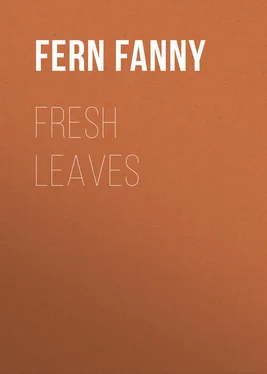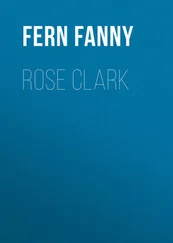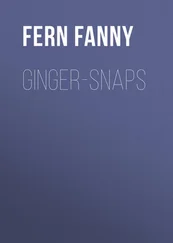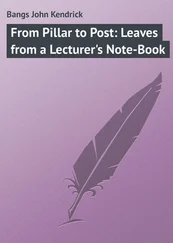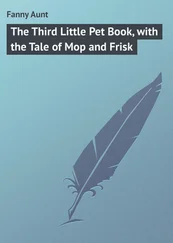Fanny Fern - Fresh Leaves
Здесь есть возможность читать онлайн «Fanny Fern - Fresh Leaves» — ознакомительный отрывок электронной книги совершенно бесплатно, а после прочтения отрывка купить полную версию. В некоторых случаях можно слушать аудио, скачать через торрент в формате fb2 и присутствует краткое содержание. Жанр: foreign_antique, foreign_prose, на английском языке. Описание произведения, (предисловие) а так же отзывы посетителей доступны на портале библиотеки ЛибКат.
- Название:Fresh Leaves
- Автор:
- Жанр:
- Год:неизвестен
- ISBN:нет данных
- Рейтинг книги:5 / 5. Голосов: 1
-
Избранное:Добавить в избранное
- Отзывы:
-
Ваша оценка:
- 100
- 1
- 2
- 3
- 4
- 5
Fresh Leaves: краткое содержание, описание и аннотация
Предлагаем к чтению аннотацию, описание, краткое содержание или предисловие (зависит от того, что написал сам автор книги «Fresh Leaves»). Если вы не нашли необходимую информацию о книге — напишите в комментариях, мы постараемся отыскать её.
Fresh Leaves — читать онлайн ознакомительный отрывок
Ниже представлен текст книги, разбитый по страницам. Система сохранения места последней прочитанной страницы, позволяет с удобством читать онлайн бесплатно книгу «Fresh Leaves», без необходимости каждый раз заново искать на чём Вы остановились. Поставьте закладку, и сможете в любой момент перейти на страницу, на которой закончили чтение.
Интервал:
Закладка:
What if he did bring me a sly piece of cake in his pocket? Who likes to live on gruel forever? What if he did open the blinds and let a little blessed sunlight in, when she tried to humbug us into the belief that “it would hurt the baby’s eyes,” because she was too lazy to wipe the dust from the furniture? What if he did steal one of her knitting needles, when she sat there, evening after evening, knitting round, and round, and round that interminable old gray stocking, my eyes following her with a horrid sort of fascination, till my nerves were wound up to the screaming point? What if I did tell him that she always set her rocking-chair on that loose board on the floor, which sent forth that little crucifying squeak, and that she always said “Bless me!” and was always sure to get on to it again the very next time she sat down? What if I did tell him that when she had eaten too much dinner, and wanted to take a sly nap, she would muffle the baby up in so many blankets that it could not cry if it wanted to, and then would draw the curtains closely round my bed, and tell me that “it was high time I took a nap?” I, who neither by stratagem or persuasion, could ever be induced to sleep in the daytime? I, who felt as if my eye-lashes were fastened up to the roots of my hair, and as if legions of little ants were crawling all over me?
What if I did tell him that she got up a skirmish with me every night, because I would not wear a nuisance called a night-cap? What if I did tell him that she insisted upon putting a sticky pitch-plaster upon my neck, for a little ghost of a cough (occasioned by her stirring the ashes in the grate too furiously), and that when I outgeneraled her, and clapped it round the bed-post instead, she muttered, spitefully, that “a handsome neck would not keep me out of my coffin?” What if I did tell him that she tried on my nice little lace collars, when she thought I was asleep at night, and insisted on my drinking detestable porter, that its second-hand influence might “make the baby sleep?” What if I did, was he not my husband? Did I not tell him every thing? laugh with him? cry with him? eat out of his plate? drink out of his cup of tea, because being his, I fancied they tasted better than mine? and didn’t he like it, too? Of course he did!
What if I did tell him all this? Poor Charley! he was forlorn, too; his cravats were tied like a fright all the time I was sick, his hair looked like any other man’s, the buttons were off his pretty velvet vest, and he had not even the heart to get his boots blacked. Poor Charley!
Well; that nurse had the impudence to tell us one evening “that we acted like two children.” “ Children! ” We! Us! the parents of that eight-pound baby! That was the last drop in our cup. Charley paid her, and I was so glad when she went, that I laughed till I cried.
Then we both drew a long breath and sat down and looked at the new baby — our baby; and Charley asked me about its little sleeping habits, and I told him, with a shake of the head, that I could not speak definitely on that point; and then we discussed, in a whisper, the respective merits of cribs and cradles, and the propriety of teaching it, at an early period, that impressive line of Mrs. Hemans:
“Night is the time for sleep;”
and then Charley got up, and exchanged his musical boots for a noiseless pair of slippers, and changed the position of the shovel, tongs, and poker, and oiled the creaking hinge of the closet door, and laid a chair over the squeaking board in the floor, that he might not tread on it, and with one eye on the baby, gently shaded the lamp; and then he looked at me, and gave a little sort of congratulatory nod, and then he drew off his vest and hung it over a chair, and then – out rattled a perfect tempest of half dollars, quarters, shillings, and sixpences, on the hearth! Of course, the baby woke (frightened out of a year’s growth), and screamed until it was black in the face. In vain its poor, inexperienced papa kissed it, scratching its little velvet face with his rough whiskers the while! In vain we both walked the floor with it. The fire went out, the lamp went; and just at daybreak it came to us like a revelation, the sarcastic tone of that hateful old nurse, as she said, “Good-by; I hope you’ll get along comfortably with the dear baby!”
And so we did. Do you suppose one night’s watching was going to quench our love, either for the baby, or for each other? No – nor a thousand like it! for, as Dr. Watts, or Saxe, hath it, “it was one of the kind that was not born to die.”
THE SHADOW OF A GREAT ROCK IN A WEARY LAND
Man may turn his back upon Revelation, and feed upon the dry husks of infidelity, if he will; but sure I am, that woman can not do without her Saviour. In her happiest estate, she has sorrows that can only be intrusted to an Almighty ear; responsibilities that no human aid can give her strength to meet. But what if earthly love be poisoned at the fountain? – what if her feeble shoulders bend unsupported under the weight of her daily cross? – what if her life-sky be black with gathering gloom? – what if her foes be they of her own household? – what if treachery sit down at her hearth-stone, and calumny await her without, with extended finger? What then – if no Saviour’s arms be outstretched to enfold her? What if it be “absurd” (as some tell her) that the God who governs the universe should stoop to interest himself in her petty concerns? What if the Bible to which she flies be “a dead letter?” and “Come unto me all ye who are weary and heavy laden” – only “a metaphor?” What earthly accents can fall upon her ear as sweet as these – “A bruised reed will I not break?” Woman may be “weak;” but blessed be the weakness which leads her to lean on that Almighty arm, which man in his pride rejects; listening rather in his extremity, to the demon whisper – “Curse God and die.”
Woman may be “weak;” you may confuse her with your sophistries, deafen her with your arguments, and standing before her in your false strength, exclaim like the unbelievers of old – “Away with him!” and still her yearning soul cries out, with a voice no subtlety of yours can satisfy or stifle – “ My Lord and my God!”
TO LITERARY ASPIRANTS
My heart aches at the letters I am daily receiving from persons who wish to support themselves by their pens; many of these letters, mis-spelt and ungrammatical, show their writers to be totally unfit for the vocation they have chosen; and yet, alas! their necessities are for that reason none the less pressing. Others, unexceptionable in these respects, see no preliminary steps to be taken between avowing this their determination, and at once securing the remuneration accorded to long-practiced writers, who, by patient toil and waiting, have secured a remunerative name. They see a short article in print, by some writer; it reads easy – they doubt not it was written easily; this may or may not be the case; if so – what enabled the writer to produce it in so short a space of time? Long habit of patient, trained thinking, which the beginner has yet to acquire.
You are taken sick; you send for a physician; he comes in, stays ten minutes, prescribes for you a healing medicine, and charges you three or four dollars. You call this “extortionate” – forgetting the medical books he must have waded through, the revolting dissections he must have witnessed and participated in, and the medical lectures he must have digested, to have enabled him to pronounce on your case so summarily and satisfactorily. To return to our subject. These practiced writers have gone through (as you must do), the purgatorial furnace which separates the literary dross from the pure ore. That all who do this should come out fine gold, is impossible; but I maintain, that if there is any thing in a literary aspirant, this process will develop it, spite of discouragement – spite of depression – nay, on that very account.
Читать дальшеИнтервал:
Закладка:
Похожие книги на «Fresh Leaves»
Представляем Вашему вниманию похожие книги на «Fresh Leaves» списком для выбора. Мы отобрали схожую по названию и смыслу литературу в надежде предоставить читателям больше вариантов отыскать новые, интересные, ещё непрочитанные произведения.
Обсуждение, отзывы о книге «Fresh Leaves» и просто собственные мнения читателей. Оставьте ваши комментарии, напишите, что Вы думаете о произведении, его смысле или главных героях. Укажите что конкретно понравилось, а что нет, и почему Вы так считаете.
